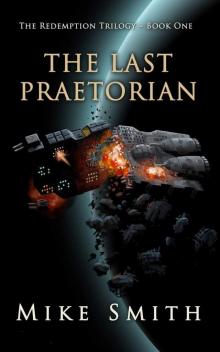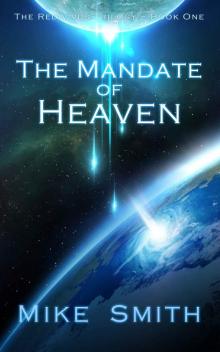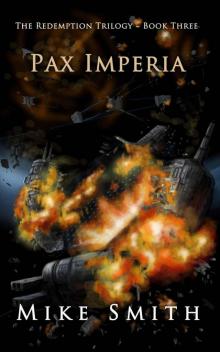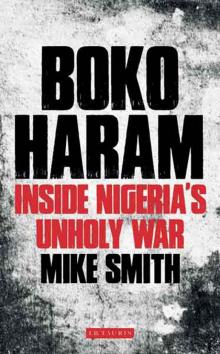- Home
- Mike Smith
Boko Haram Page 13
Boko Haram Read online
Page 13
In Jos, a major city in Nigeria’s ethnically and religiously divided central region, many Christians headed to church, and markets were crowded with shoppers stocking up for the holiday. The city and surrounding region had been deeply torn in recent years by unrest not linked to Boko Haram. It had often been described as religious violence because it opposed Christians and Muslims, though the disputes were really ethnic in nature, sparked by local power struggles, land disputes or cattle theft. Such violence often saw residents shot or hacked to death with machetes and houses set on fire, sparking cycles of attacks and retribution. The last serious outbursts in the region had occurred early that year, in January as well as in March 2010, leaving hundreds dead.10 The violence on Christmas Eve would, however, involve explosives.
Seven bombs planted at various spots ripped through the city, including at a market busy with Christmas shoppers, killing at least 32 people.11 On the same evening in Maiduguri, hundreds of miles away, extremists attacked three churches and killed six people. In Jos, where even the slightest spark is capable of setting off ethnic tensions, rioting broke out in the days following, killing dozens more. It was unclear if the attacks in the two different cities were planned together, but the simple fact that they occurred at all were startling enough. Bombs had never before been used in Jos, and churches had not been previously singled out for attacks.
On 28 December, a statement appeared on a website believed to be from Boko Haram claiming credit for both the Jos bombings and the church attacks in Maiduguri. A video was also posted of a man believed to be Abubakar Shekau, Boko Haram’s new leader, calling the attacks part of a ‘religious war’. In the video he said: We are the ones who carried out the attack on [...] Jos. We are the Jama’atu Ahlus-Sunnah Lidda’Awati Wal Jihad that have been maliciously branded Boko Haram [...] Everybody knows about the gruesome murders of Muslims in different parts of Nigeria [...] Jos is a testimony to the gruesome killings of our Muslim brethren and the abductions of our women and children whose whereabouts are still unknown [...] My message to my Muslim brethren is that they should know that this war is a war between Muslims and infidels. This is a religious war. 12
The bombings marked the group’s first move out of the north and into the tinderbox known as the middle belt, as central Nigeria was often referred to, threatening to inflame the ethnic and religious tensions that had long haunted the region. It was exactly the kind of provocation that had so worried those afraid that Nigeria could again go to war with itself, as it had more than forty years earlier. Nigeria had repeatedly defied such doomsday predictions, somehow surviving repeated catastrophes and remaining together as one nation, however fragile, but escalating the conflict in the middle belt posed new, unpredictable risks.
There was at first widespread scepticism about whether Boko Haram was indeed responsible for the Jos bombings. In some ways it seemed more likely that those involved in the ethnic conflict in the middle belt would carry out such an attack in Jos, even though bombs had not been previously used there. The middle-belt conflict had gradually worsened over the years, from the use of rudimentary weapons such as sticks and arrows to guns, and it was certainly plausible that bombs could be the next stage in the crisis. Another factor that was especially important was that election season was approaching, and it had long seemed that local power brokers had exploited the region’s tensions and stoked some of the violence for political gain. In the face of all of that, however, as time passed and Boko Haram was blamed for more violence in central Nigeria, the group’s claim seemed to ring true.
Speculation over the Jos attack would quickly be interrupted. The next bombing would be yet another escalation, not in terms of casualties or scale, but location. It would occur in Abuja, the nation’s capital, on New Year’s Eve night as crowds gathered in an area known as Abacha Barracks, where an outdoor market and bar were located. Though it was next to a military barracks, it was a popular place for civilians, similar to many other spots across Nigeria where people go to relax, sip Star and Gulder beer and eat grilled fish at tables set up under the stars. The bomb would go off early in the evening, killing at least four people and wounding around 12 others.13 Nigeria’s president spoke of the bombing at a church service the following day, referring to whoever carried it out as ‘criminals’ being used by ‘demons’ and employing biblical language to describe the country’s struggles. He seemed to hint at political links with elections approaching and politicians from northern Nigeria opposing his candidacy, but his remarks were too vague to interpret.
‘Some people say they are politicians, some say they are religious fanatics, but to me they are pure criminals’, Jonathan said. He continued: They are ones demons are using these days, not only in Nigeria. For those of you who have time to listen to world news on Al-Jazeera or CNN, you will see that terrorism is criss-crossing the whole world. Today, there are two things that are so important and so noticeable – technological developments. Countries, nations, are developing technologically. The next that is pushing these countries backward is terrorism. But I will tell Nigerians, be calm, be stable. If you look at the journey of the Israelites to go to the promised land it was tortuous. A number of them even died along the way [...] These explosives and explosions are part of the road bumps that are being placed, but God will see us through. They will never stop Nigeria from where we are going to [...] God will help us as a nation that we will get to the root of this matter. I urge Christians to continue to pray that some of these people will even confess to Nigerians, that at the appropriate time they will tell us that they are behind this. But for now, the security people are on it and they will get to the root of this matter. 14
* * *
The election campaign ground ahead. Despite having earlier signalled that he may not run, leaving open the possibility that the north could regain the presidency, Jonathan eventually launched himself into the campaign with the strong backing of his southern political benefactors. This had led to a rift within the Peoples Democratic Party, with northern politicians plotting a way to win the primary and deny Jonathan the nomination for the office he already held. Prominent northerners announced their candidacies, including former military dictator Ibrahim Babangida, the so-called Maradona and evil genius of Nigerian politics. Babangida, who had remained influential despite having left office in 1993, was remembered by much of the country, however, particularly in the south-west, for his cancellation of the 1993 elections. After Babangida announced he was running, posters went up in Abuja with ‘June 12, 1993’ written on them, reminding everyone of the annulled vote. Other northerners to announce their candidacies for the PDP primary were Atiku Abubakar, who was vice president under Obasanjo and a wealthy ex-customs official invested in sectors ranging from telecommunications to oil; Aliyu Gusau, a former national security adviser and intelligence expert known for his ample connections and behind-the-scenes influence; and Bukola Saraki, the then-governor of Kwara state and scion of an influential family.
The campaign for the nomination largely amounted to a series of negotiations, not to mention the distribution of cash-stuffed envelopes as the 12 January primary drew near.15 In the end, the party would have to decide whether it would maintain what it called ‘zoning’, a policy of rotating the presidency between the north and south every two terms, or if it was prepared to abandon it and hand the nomination to Jonathan. As the weeks passed, it became increasingly clear that Jonathan’s team was having some success in building support for his case that the country was better off without ‘zoning’, that such a power-sharing agreement was no longer needed to hold the vast and complex country together, that it had moved beyond ethnic politics. Among the electorate, he seemed to inspire a certain amount of hope – somewhat ironically given his sleepy persona. His unlikely rise and calm demeanour led to the impression that he may be different from the country’s dominant politicians who had robbed Nigeria of so much of its wealth over the years. His campaign managers seized on this and sought t
o capitalise on it, using Jonathan’s Facebook page to announce his candidacy and emphasising his family’s humble roots. Despite his sometimes fumbling speech and arguments from his opponents that he was ill-prepared, there was a feeling among many in the country that Nigeria had tried strongmen, military men and slick dealmakers, only to be left disappointed. Perhaps it was time for something else.
Meanwhile, as this feeling gained momentum, the northerners who had announced their candidacies and other elite politicians from the region forged ahead with discussions on how to proceed. All of the major northern PDP candidates eventually agreed on a united strategy, though perhaps for their own reasons. Babangida, Gusau and Saraki announced that they would drop out of the race in support of a single northern candidate, Atiku Abubakar, setting up a showdown between him and the president at the party’s primary, where thousands of delegates would line up at Eagle Square parade ground in the capital and drop ballots in clear boxes live on national television. Their votes were counted aloud immediately afterwards as the cameras rolled, a process that would not finish until the early hours of the next morning. As the count droned on, it became clear that Jonathan had managed to lock up more than enough delegates, and he would go on to dominate the primary vote.
In a sense, Nigerian history had been made. The PDP had cast aside its rotation policy and nominated a southerner when it was supposed to be the north’s turn. Beyond that, Jonathan could also become the first elected president from the oil-producing and impoverished Niger Delta region, and since he was an Ijaw by ethnicity, the first not to be a Yoruba, Hausa-Fulani or Igbo, Nigeria’s main ethnic groups. His journey was not yet complete, however. The general election awaited, and it posed a potentially significant challenge to the PDP’s grip on the presidency, which the party had controlled since Nigeria ended military rule in 1999. His main opponent, the ex-military dictator Muhammadu Buhari, was a northerner with populist support, based largely on the impression that he was tough on corruption, even though his regime in the 1980s had been accused of major rights abuses.
As election day approached, there was intense focus on preparations and whether or not the polls would be fair this time around. There were high hopes for the academic now heading the electoral commission, Attahiru Jega, a respected intellectual viewed as relatively independent. The presidential election was to be the second of three votes staggered over three weeks, with the parliamentary polls set to be first on 2 April, the presidential vote on 9 April and the state governors’ ballot on 16 April. It was going to be a marathon, and with so many uncertainties, there was a feeling of both hope and trepidation in the country. Could Nigeria finally get it right and set itself on a course that would allow it to fulfil its great potential? Or would the election descend into chaos and violence like others before it? The potential for both could be seen during the voter registration process in the weeks leading up to the election. Young and earnest election workers, intent on seeing their country improve, diligently sought to enlist Nigeria’s huge population using an electronic registration system. At the same time, registration centres lacked electricity, sometimes causing them to borrow or rent small generators from residents. When generators were not available, there were delays, and crowds waiting to register grew frustrated. Yet, despite such challenges, the electoral commission announced at the end of the process that 73.5 million people had been registered, and there was reason to see progress in the perseverance showed by both election workers and the public.
But as the first of the three elections opened, Jega ran into trouble straight away. A few hours after the start of the parliamentary election, he was forced to appear on national television and announce what in many countries would have been unthinkable: he was calling it off and suspending the vote by one week because voting materials had failed to arrive at a long list of locations throughout the country. The rumoured and official reasons offered for why the materials had been delayed ranged from sabotage to a simple contractor’s error. Whatever the true explanation, Nigeria’s bid at holding respectable elections had stumbled badly out of the gate, and Jega would be forced to quickly recover as the nation waited impatiently. There was an initial backlash against him, with many people questioning how he could allow such a disastrous misstep. But as the furore died down and many of those criticising Jega acknowledged the near-impossible task before him, support once again swayed behind him. Election observers and anti-corruption groups expressed their faith in him and judged that he had made the right decision, that an election in such questionable circumstances could never have been called free and fair.
The following week, however, would bring worse news. The Boko Haram violence that had been ignored for so long would strike at the heart of what was hopeful about the election. In the city of Suleija, about 45 miles from Abuja in the country’s centre, far away from the restive north-east, a bomb would explode as poll workers gathered at an electoral office on the night before the vote, including young university graduates from the National Youth Service Corps. Thirteen people were killed and dozens of others were wounded.16 Blame fell on Boko Haram, with security forces later saying a cell of the group based in the area was responsible.
The parliamentary vote would nevertheless go forward as planned, though not in Suleija, where another postponement would occur. There would also be two other, less deadly bomb attacks in Maiduguri on election day, but overall there was a sense of progress, with residents appearing determined to cast their vote.
The following week’s presidential election was the main event, and in many ways, the conduct of the vote was being seen as equally important as the actual outcome. Jonathan’s government had been promising a free and fair ballot for months, and Western diplomats and good-government groups had also been urging the country’s leaders to stick to that commitment. Holding a reasonably fair election would in itself be a major accomplishment for Nigeria and could serve as an example for other African nations given the country’s status as the continent’s most populous.
Election day opened smoothly in most of the country, but the unrelenting Boko Haram violence would again hit the north, with two explosions in Maiduguri, including one the night before, and one in the city of Kaduna. Casualties were said to be minimal. Sadly, the country had almost come to expect such incidents, and the explosions had no effect on the conduct of the vote in the rest of Nigeria. There were other isolated instances of violence and irregularities, but positive signs emerged as the day progressed. Locally based observer groups deployed motivated young Nigerians, who used mobile phones and social media to record and relay what they saw. Nigerians seemed committed to making a statement, peacefully queuing up and casting their ballots. As polling places closed and counting began, one could not help but feel encouraged by the scenes that unfolded: Nigerians stood by, sometimes in the rain, and recorded the counting process with their phones. That does not mean there were no problems; there were many. There had been instances of underage voting, intimidation and violence, not to mention allegations of figures being doctored in some areas. What would happen after the ballots were taken away to collating centres would also be another matter, and one that observers would later raise serious concerns over.17 But despite that, there was the sense that such incidents were far fewer than in previous years. As a result, election day produced a feeling of positivity for many, who felt that finally, after years of chaotic, violent and fraudulent polls, Nigeria had taken a step toward true democracy.
Unfortunately, the positive vibes would not last. As early results began to come in the morning after the vote, a potentially dangerous trend emerged. Initial figures revealed a sharp divide in the electorate between the north and south. As more results were reported, giving Jonathan a clear lead, the violence began. Rioting would break out in neighbourhoods across the north, eventually spreading to 12 of the country’s 36 states. It spiralled completely out of control, with communities turning on one another and mobs targeting northern politicians they believed coo
perated with Jonathan and his allies. In the city of Kano, mobs stopped cars and searched for southerners and Christians while fighting running battles with the police. They charged into the luxurious home of a former speaker of the House of Representatives, ransacking the inside. The worst violence occurred in southern Kaduna state, part of the middle belt between the country’s north and south, where Christian communities turned on Muslim residents, burning homes, hacking people to death with machetes and gunning people down. One official, trying to find words to describe what had happened there, told me, ‘I wouldn’t like to use the term massacre [...] some places it was terrible’. Despite his reticence to use the word, what occurred in the southern Kaduna communities of Zonkwa and Kafanchan was certainly a massacre. Over the course of three days, an estimated 800 people were killed in the violence across the north, the vast majority in southern Kaduna state. Another 65,000 were displaced.18
The following month, I visited the city of Kaduna, the state capital further north and where thousands of displaced had taken refuge in a camp. One woman from Zonkwa, 67-year-old Talle Musa, spoke of hiding in a neighbour’s house and her husband being murdered. ‘He said whatever happened we should not go out, that we should just be patient’, she said. ‘We didn’t know it was like his farewell to us.’ She became faint and backed away, declining to speak further. Others at the camp talked of people being burnt, hacked or shot. One man said he managed to escape by hiding in a well.
Various theories were offered for why the violence occurred and what set it off. Some said rumours of rigging were to blame, while others claimed that the initial incident was the result of a simple dispute over money, with ruling party operatives failing to pay neighbourhood thugs who rounded up votes on their behalf. Whatever the initial cause, it quickly built on itself and became a general expression of frustration on various levels – anger over corruption, the north’s loss of the presidency, long-festering communal disputes, to name a few. Nigeria had been once again shown to be a deeply divided country, and the riots led to rising calls for someone – anyone – to stop the violence before it was too late. Jonathan went on national television and made a frightening comparison. ‘If anything at all, these acts of mayhem are sad reminders of the events which plunged our country into 30 months of an unfortunate civil war’, the president said, evoking the Biafran conflict more than four decades earlier.

 The Sunfire
The Sunfire The Last Praetorian (The Redemption Trilogy)
The Last Praetorian (The Redemption Trilogy) The Mandate of Heaven
The Mandate of Heaven Pax Imperia (The Redemption Trilogy)
Pax Imperia (The Redemption Trilogy) Boko Haram
Boko Haram